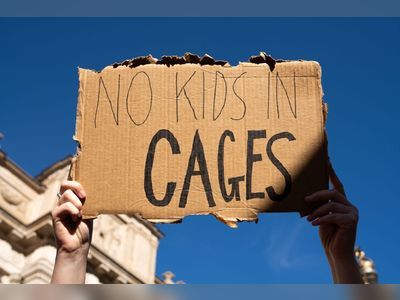
UK Set for Women's World Cup Bid with Manchester United's New Stadium on the Horizon
The UK appears poised to host the 2035 Women's World Cup, with Wembley and a potential new Manchester United stadium as leading venues.
The United Kingdom has received a significant endorsement to host the 2035 Women’s World Cup, as FIFA President Gianni Infantino announced that the country faces no competition in its bid.
This will mark the first time a football World Cup takes place in Britain since the men’s tournament in 1966. The Football Association (FA) anticipates that Wembley Stadium will serve as the venue for the final match, although final approval will rest with FIFA.
Manchester United's proposed new stadium, designed to seat approximately 100,000, could also play a pivotal role should it be completed on schedule.
Mark Bullingham, the FA chief executive, indicated that discussions will commence with Manchester United to determine the feasibility of including their stadium in the formal bid, which is due for submission in November.
Bullingham emphasized the importance of coordinating with ongoing stadium projects across the country, including those in Birmingham, to ensure suitable facilities for the tournament.
Bullingham made these remarks during UEFA’s annual congress in Belgrade, where Infantino’s announcement was a highlight.
In addition to the UK bid, Infantino confirmed plans for the Women’s World Cup to expand to 48 teams starting from 2031, aligning with the structure of the men's competition.
Bullingham expressed confidence in the UK’s ability to accommodate the larger scale of the event.
The readiness to facilitate 16 stadiums for the expanded World Cup was noted as essential for the success of hosting.
Among notable venues expected to host matches are Cardiff’s Principality Stadium and the redeveloped Racecourse Ground in Wrexham.
Hampden Park in Glasgow is positioned to represent Scotland in the bid, while plans to increase the capacity of Windsor Park in Belfast from 18,500 to at least 20,000 are also underway.
The FA's optimistic position has been bolstered by the absence of rival bids, previously a concern for officials amidst rumors of potential competition from Spain, Portugal, and Morocco.
The deadline for expressions of interest closed recently, with clarity on the bidding process emerging shortly thereafter.
Infantino also mentioned that the United States, likely in collaboration with other Concacaf nations, is the sole candidate for the 2031 edition of the Women's World Cup.
Held recently in England, the Women’s European Championship was met with considerable success, with the Lionesses emerging victorious.
However, England’s previous bids for the men's tournaments in 2006 and 2018 were met with disappointment, as they fell short against Germany and Russia respectively.
The upcoming men’s European Championship in 2028, slated to be co-hosted by the UK and the Republic of Ireland, may provide a preparatory framework for the 2035 Women’s World Cup.
Amidst these developments, head coach Sarina Wiegman expressed enthusiasm for the prospect of hosting the tournament, recognizing the significant attention the Euros garnered for women’s football in the UK and beyond.
Leah Williamson, captain of the Lionesses, echoed these sentiments, highlighting the importance of the FA’s commitment to elevating women’s football.
Wiegman and Williamson both referenced Euro 2022 as a catalyst for the sport’s growth in the country.
The UK government has pledged its support for the bid, with Prime Minister Keir Starmer emphasizing the potential economic and social benefits involved.
He articulated that this initiative represents a remarkable opportunity for the future of women's football in the UK, envisioning a new generation of players on the pitch by 2035.
For the bid to proceed, it must receive ratification at FIFA’s congress in 2026, with the government expected to provide guarantees relating to tax and security by the end of the month.
This will mark the first time a football World Cup takes place in Britain since the men’s tournament in 1966. The Football Association (FA) anticipates that Wembley Stadium will serve as the venue for the final match, although final approval will rest with FIFA.
Manchester United's proposed new stadium, designed to seat approximately 100,000, could also play a pivotal role should it be completed on schedule.
Mark Bullingham, the FA chief executive, indicated that discussions will commence with Manchester United to determine the feasibility of including their stadium in the formal bid, which is due for submission in November.
Bullingham emphasized the importance of coordinating with ongoing stadium projects across the country, including those in Birmingham, to ensure suitable facilities for the tournament.
Bullingham made these remarks during UEFA’s annual congress in Belgrade, where Infantino’s announcement was a highlight.
In addition to the UK bid, Infantino confirmed plans for the Women’s World Cup to expand to 48 teams starting from 2031, aligning with the structure of the men's competition.
Bullingham expressed confidence in the UK’s ability to accommodate the larger scale of the event.
The readiness to facilitate 16 stadiums for the expanded World Cup was noted as essential for the success of hosting.
Among notable venues expected to host matches are Cardiff’s Principality Stadium and the redeveloped Racecourse Ground in Wrexham.
Hampden Park in Glasgow is positioned to represent Scotland in the bid, while plans to increase the capacity of Windsor Park in Belfast from 18,500 to at least 20,000 are also underway.
The FA's optimistic position has been bolstered by the absence of rival bids, previously a concern for officials amidst rumors of potential competition from Spain, Portugal, and Morocco.
The deadline for expressions of interest closed recently, with clarity on the bidding process emerging shortly thereafter.
Infantino also mentioned that the United States, likely in collaboration with other Concacaf nations, is the sole candidate for the 2031 edition of the Women's World Cup.
Held recently in England, the Women’s European Championship was met with considerable success, with the Lionesses emerging victorious.
However, England’s previous bids for the men's tournaments in 2006 and 2018 were met with disappointment, as they fell short against Germany and Russia respectively.
The upcoming men’s European Championship in 2028, slated to be co-hosted by the UK and the Republic of Ireland, may provide a preparatory framework for the 2035 Women’s World Cup.
Amidst these developments, head coach Sarina Wiegman expressed enthusiasm for the prospect of hosting the tournament, recognizing the significant attention the Euros garnered for women’s football in the UK and beyond.
Leah Williamson, captain of the Lionesses, echoed these sentiments, highlighting the importance of the FA’s commitment to elevating women’s football.
Wiegman and Williamson both referenced Euro 2022 as a catalyst for the sport’s growth in the country.
The UK government has pledged its support for the bid, with Prime Minister Keir Starmer emphasizing the potential economic and social benefits involved.
He articulated that this initiative represents a remarkable opportunity for the future of women's football in the UK, envisioning a new generation of players on the pitch by 2035.
For the bid to proceed, it must receive ratification at FIFA’s congress in 2026, with the government expected to provide guarantees relating to tax and security by the end of the month.











